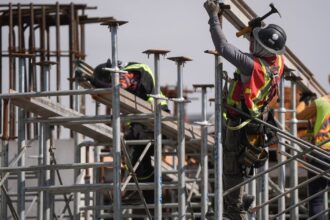In the constellation of Canadian public figures, few stars have shone as brightly or across such diverse domains as Marc Garneau. The former astronaut-turned-politician, who recently stepped away from public life, leaves behind a legacy that spans the cosmos and the corridors of Parliament Hill, according to those who worked alongside him throughout his remarkable career.
“Marc brought a unique perspective to everything he touched,” said former Canadian Space Agency colleague Dr. Roberta Williams. “When you’ve seen Earth from orbit, you develop a different understanding of our place in the universe and the importance of collaboration. He carried that worldview into politics.”
Garneau’s journey began far from the political arena. As Canada’s first astronaut in space aboard the Challenger shuttle in 1984, he pioneered a path for future Canadian space explorers while conducting groundbreaking scientific experiments in orbit. His later missions in 1996 and 2000 further cemented his place in Canada’s space history before he transitioned to lead the Canadian Space Agency from 2001 to 2006.
What distinguished Garneau from many of his contemporaries was his successful pivot to public service on Earth. Entering politics in 2008, he eventually won a seat in Parliament representing the Montreal riding of Notre-Dame-de-Grâce—Westmount, beginning a political career that would see him serve in several high-profile ministerial positions, including Transport, Foreign Affairs, and eventually as Minister of Transport.
“His analytical approach to complex problems was something to behold,” said former parliamentary colleague James Dawson. “Whether addressing railway safety regulations or navigating international diplomatic challenges, Marc brought that engineer’s precision combined with an astronaut’s broad perspective.”
Throughout his political career, Garneau earned respect across party lines for his measured approach and commitment to evidence-based decision-making. During his tenure as Transport Minister, he implemented significant aviation safety reforms and championed passenger rights legislation that fundamentally changed how airlines must treat Canadian travelers.
“What made Marc effective wasn’t just his impressive background, but his willingness to listen,” noted former ministerial aide Sophie Lambert. “He didn’t need to be the loudest voice in the room—he was often the most thoughtful one.”
Beyond his official duties, Garneau remained a passionate advocate for science education and inspiring young Canadians to pursue careers in STEM fields. He frequently visited schools across the country, sharing his experiences and encouraging students to reach for the stars, both literally and figuratively.
As Garneau steps away from public life, many Canadians reflect on the unique journey of a man who has shaped the nation’s identity both in space and on Earth. His story represents a remarkable blend of scientific achievement and public service that few can match.
“Marc’s greatest contribution might be showing that the skills of scientific inquiry—curiosity, evidence-gathering, and methodical problem-solving—have enormous value in political leadership,” said Dr. Thomas Bergeron, director of the Canadian Institute for Advanced Research. “At a time when politics often seems driven more by rhetoric than reason, his approach stands as an important example.”
As Canada continues its involvement in international space initiatives and addresses complex policy challenges at home, Garneau’s dual legacy offers a blueprint for those who seek to bridge the worlds of science and public service. As we look to the future of Canadian leadership, one question remains: Will we see more leaders who can successfully translate scientific thinking into effective governance in the decades to come?

























